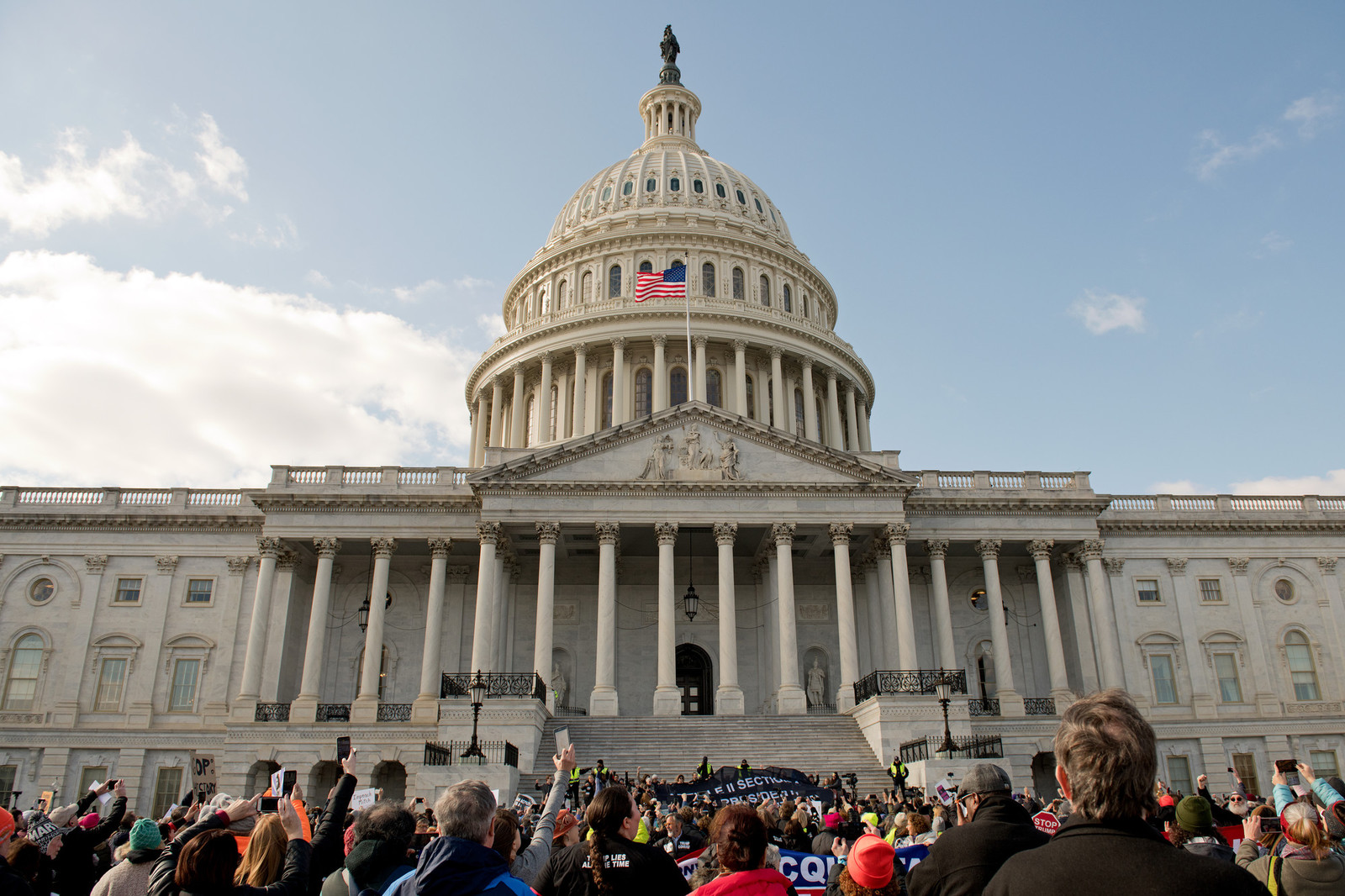
Poor People's Campaign march in Washington, D.C. in January 2020. Bryan Vana / AFSC
Last year, at the start of the pandemic, we watched with dismay as Congress voted to spend taxpayer dollars on 96 F-35 warplanes—17 more than the president had requested. At the same time, legislators argued over the cost of COVID-19 relief packages to provide stimulus payments, unemployment benefits, food assistance, and more to pandemic-affected communities across the U.S.
Right now, the same misguided priorities are on full display.
Members of Congress are squabbling over the cost of Build Back Better legislation. This is a once-in-a-lifetime bill could vastly improve the lives and health of people across the U.S. The plan would reduce child poverty, bolster paid family leave, provide legal status for many immigrants, address climate change, and much more. The Biden administration’s original proposal would cost about $3.5 trillion. But now, many members of Congress—especially moderate Democrats—are chipping away at these important priorities by removing billions of dollars from the total package.
What aren’t these legislators nickel and diming? Spending on weapons and war. The House and Senate Armed Services Committees each voted to increase military spending by about $25 billion over Biden’s budget request in the defense authorization bill. That’s despite the end of the war in Afghanistan, well-documented waste and fraud by defense contractors, and the Pentagon’s inability to pass an audit.
The dissonance between Congress’ approach to military spending and to social spending programs is clearer than ever.
If Congress funds the military at the level authorized by these committees, U.S. spending on the military and nuclear weapons would be a whopping $778 billion in 2022. That would be significantly more expensive than the Build Back Better investments in our communities’ well-being. If the Build Back Better plan passed at its full $3.5 trillion level for the next 10 years, it would cost only $350 billion per year. That’s less than half of the amount proposed for the Pentagon.
Chart: Stephen Semler (@stephensemler) in Speaking Security newsletter.
And, unlike Pentagon spending, the Build Back Better legislation would keep our communities safe by:
- Building a pathway to legal status for millions of people without documentation.
- Providing two years of free preschool and community college.
- Extending the Child Tax Credit and make a huge dent in child poverty nationwide.
- Investing in addressing climate change and creating sustainable jobs.
- Creating a national paid family and medical leave policy.
- And more!
Despite the Build Back Better plan’s tremendous benefits, and the obvious harms of Pentagon spending, Congress continues to prioritize spending on weapons and war over spending on social safety nets. These misguided budget priorities come at a huge cost. Spending on weapons and war harms people around the world who face U.S. airstrikes, surveillance, and military threats—and takes funding away from programs that bolster global well-being.
The pandemic, impacts of climate change, and lack of affordable housing are some of the biggest threats to collective well-being that we face. Yet many members of Congress continue to greenlight massive military budgets, while gutting spending bills meant to address the actual needs of our communities.
As legislators attempt once again to cut social spending plans and divert billions of dollars from the budget into weapons and war, tell Congress: Stop spending money on weapons and war and invest in our communities instead.
